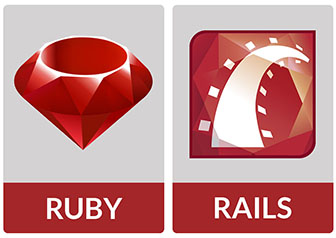
In this tutorial, we will show you how to install Ruby on Rails on Ubuntu 20.04 LTS. For those of you who didn’t know, Ruby on Rails (RoR) is a framework written in the Ruby programming language that allows you to use Ruby in combination with HTML, CSS, and similar programming languages. It is used by many developers since it makes application development very simple.
This article assumes you have at least basic knowledge of Linux, know how to use the shell, and most importantly, you host your site on your own VPS. The installation is quite simple and assumes you are running in the root account, if not you may need to add ‘sudo‘ to the commands to get root privileges. I will show you the step-by-step installation of Ruby on Rails on Ubuntu 20.04 (Focal Fossa).
Prerequisites
- A server running one of the following operating systems: Ubuntu 20.04, 18.04, 16.04, and any other Debian-based distribution like Linux Mint.
- It’s recommended that you use a fresh OS install to prevent any potential issues.
- SSH access to the server (or just open Terminal if you’re on a desktop).
- A
non-root sudo useror access to theroot user. We recommend acting as anon-root sudo user, however, as you can harm your system if you’re not careful when acting as the root.
Install Ruby on Rails on Ubuntu 20.04 LTS Focal Fossa
Step 1. First, make sure that all your system packages are up-to-date by running the following apt commands in the terminal.
sudo apt update sudo apt upgrade sudo apt install gcc g++ make
Step 2. Installing RVM (Ruby Version Manager)
Now import GPG keys of the RVM using the GPG command below:
gpg --keyserver hkp://keys.gnupg.net --recv-keys 409B6B1796C275462A1703113804BB82D39DC0E3 \ 7D2BAF1CF37B13E2069D6956105BD0E739499BDB
Next, download the RVM installer script and install the RVM:
curl -sSL https://get.rvm.io | bash -s stable --ruby
Once installation is completed, load the RVM to the system using the following command:
source /usr/local/rvm/scripts/rvm
After that, update the RVM to the latest stable version and add the root user to the rvm group:
rvm get stable --autolibs=enable usermod -a -G rvm root
Then, check the rvm version:
rvm version
Step 3. Installing Ruby.
Now we install Ruby using the rvm command:
rvm install ruby-2.7.1
You can check out your Ruby version using the following command:
ruby --version
Step 4. Installing Node.js and Yarn.
Now add the Nodejs Nodes source repository:
curl -sL https://deb.nodesource.com/setup_14.x | sudo -E bash -
Then, add the GPG key and repository of the Yarn package manager:
curl -sL https://dl.yarnpkg.com/debian/pubkey.gpg | sudo apt-key add - echo "deb https://dl.yarnpkg.com/debian/ stable main" | sudo tee /etc/apt/sources.list.d/yarn.list
After that, update all available repositories on your system and run the following command to install the Node.js and Yarn:
sudo apt update sudo apt install yarn nodejs
Once installation is completed, check the Node.js and Yarn version using the following command:
$ node --version $ yarn --version
Step 5. Installing Ruby on Rails on Ubuntu 20.04.
Install Ruby on Rails using the gem command:
gem install rails
When the installation is finished, check the Ruby on Rails version:
rails --version
Congratulations! You have successfully installed Ruby on Rails. Thanks for using this tutorial for installing Ruby on Rails in Ubuntu 20.04 LTS Focal Fossa systems. For additional help or useful information, we recommend you to check the official Ruby on Rails website.